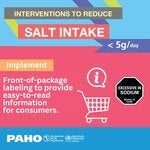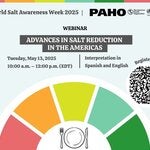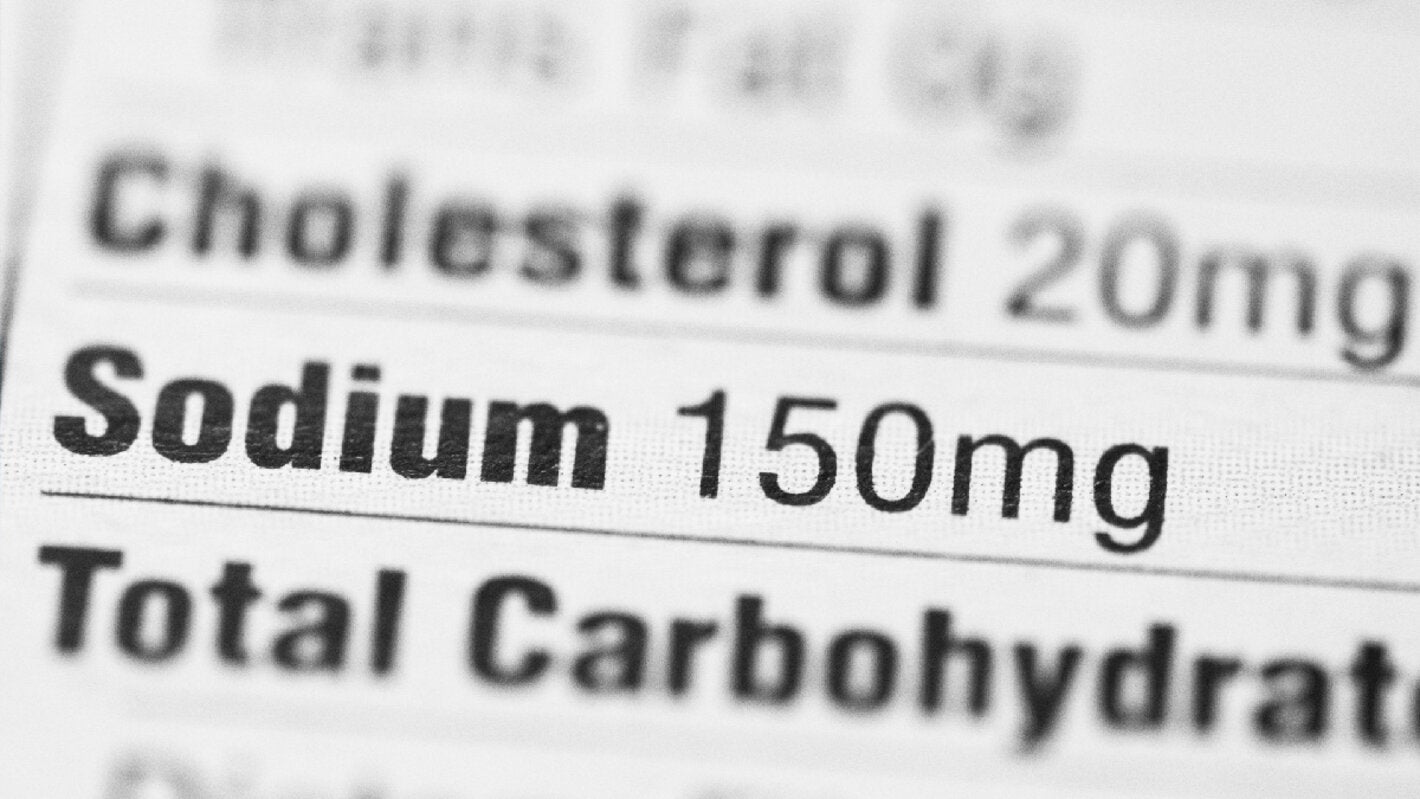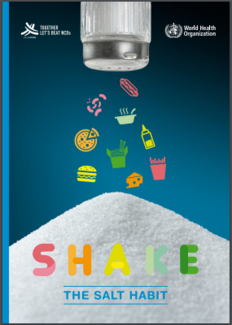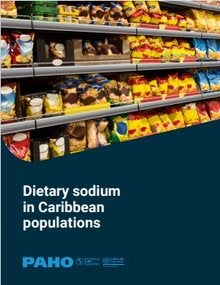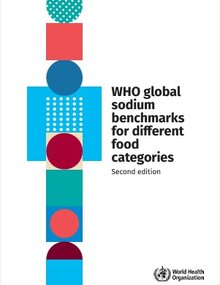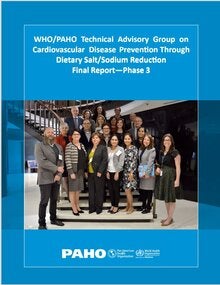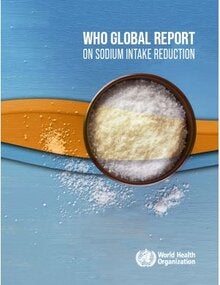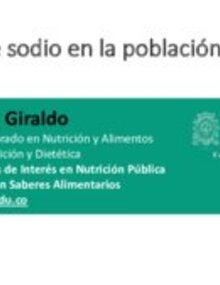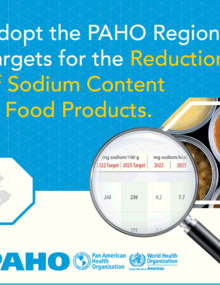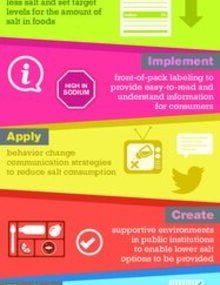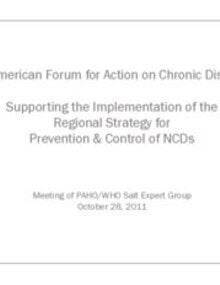Salt intake reduction is one of the recommended interventions in the Global Action Plan for the Prevention and Control of Noncommunicable Diseases (NCDs) 2013-2030, endorsed by the 66th Global Health Assembly, where a voluntary target for a 30% relative reduction of the average sodium intake at the population level is established for 2025, essential to achieve the global goal of reducing a 25% in premature mortality by NCDs. In 2018, the World Health Organization published the SHAKE technical package to support Member States in developing, implementing, and monitoring strategies aimed at reducing population salt intake.
Excessive dietary sodium intake increases blood pressure, causing about 30% of hypertension prevalence. It has been associated with stomach cancer, worsening asthma symptoms, osteoporosis, kidney stones, kidney disease, and obesity since salty foods cause thirst, which is usually quenched with sugary beverages. WHO estimates that the average global sodium intake is 4310 mg (10.78 g of salt), more than double the WHO recommendation for adults of less than 2000 mg/day sodium (5 g/day of salt).
High blood pressure contributes to at least 40% of all cardiovascular diseases and strokes, which are 45% of all noncommunicable diseases. Hypertension is a significant risk factor in the Americas, as it is estimated that between 20.7% and 56.4% of the adult population 30-79 years old in PAHO Member States lives with hypertension. Reducing salt intake is the most cost-effective public health measure to reduce blood pressure and mortality.
- The largest number of diet-related deaths, an estimated 1.89 million each year, is associated with excessive intake of sodium, a well-established cause of raised blood pressure, responsible for 10.8 million deaths in 2019.
- WHO recommends consuming less than 5 grams of salt or 2000 milligrams of sodium per day; in the Americas, people have an intake of up to three times this amount in all age groups, including children.
- It is estimated that the direct and indirect costs of raised blood pressure represent 5% to 15% of GDP in high-income countries and 2.5% to 8% in Latin America and the Caribbean.
In many countries, three quarters of dietary sodium comes from processed foods like bread, ultraprocessed cereals and grains, processed meats, cheese, savoury snacks, sauces and dressings, and luncheon meats. An effective way of reducing dietary sodium intake at the population level is reducing the sodium content in frequently consumed processed foods.
Elevated blood pressure accounts for about two-thirds of strokes and about one-half of heart disease, and the risk of developing hypertensive complications increases with age.
Even blood pressure rising within the normal range, lower than what most health care professionals consider to be ‘hypertension’, poses risk, causing about half of the disease attributed to elevated blood pressure.
About 30% of people with hypertension would have normal blood pressure and the others would have better blood pressure control if they reduced their salt intake to a healthy level.
About 10% of cardiovascular disease is caused by excess dietary salt.
Pre-prepared foods consumed outside the home are usually the largest source of dietary salt but in some regions, high quantities of salt are added to food cooked at home.
PAHO supported the “Salt Smart Consortium Consensus Statement to advance target harmonization by agreeing on regional targets for the salt/sodium content of key food categories,” which included regional targets and the roles of each member on the next steps. In addition to establishing voluntary regional targets on salt reduction in processed foods and a timeframe for their achievement, the Statement mentioned that they would be reviewed periodically.
PAHO provides technical assistance to its Member States in implementing the lines of action of the SHAKE the Salt Habit technical guide, developed and launched by the World Health Organization in 2016. This technical guide describes proven policies and interventions for sodium intake reduction in the following lines of action:
- Surveillance: measure and monitor salt intake.
- Harness industry: promote reformulation of foods and meals to contain less salt.
- Adopt standards for labeling and marketing: implement standards for effective and accurate labeling and marketing of food.
- Knowledge: Educate and communicate to empower individuals to eat less salt.
- Environment: support settings to promote healthy eating.
Sodium reduction policies focused specifically on the food industry are necessary and relevant, and should be implemented in a mandatory fashion. PAHO/WHO has developed several tools to support its Member States, including new updated regional targets for sodium reduction, developed in collaboration with the University of Toronto and launched in October 2021. These targets include maximum thresholds for 75 subcategories that fall within 16 main food categories. A 15% and 30% reduction were calculated for 2022 and 2025, respectively, from measured sodium levels at the 50th percentile. If the calculated value for 2025 (30% reduction) was below the 25th percentile, the 25th percentile was used as the target for 2025.
The updated PAHO regional targets for sodium reduction are an essential tool to tackle the burden of diet-related noncommunicable diseases.


